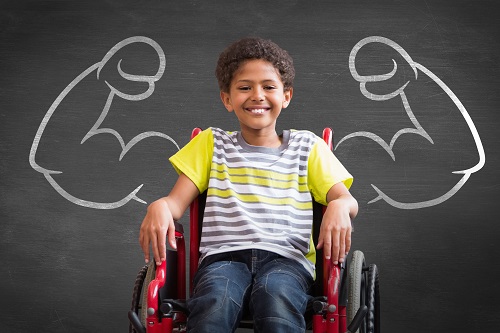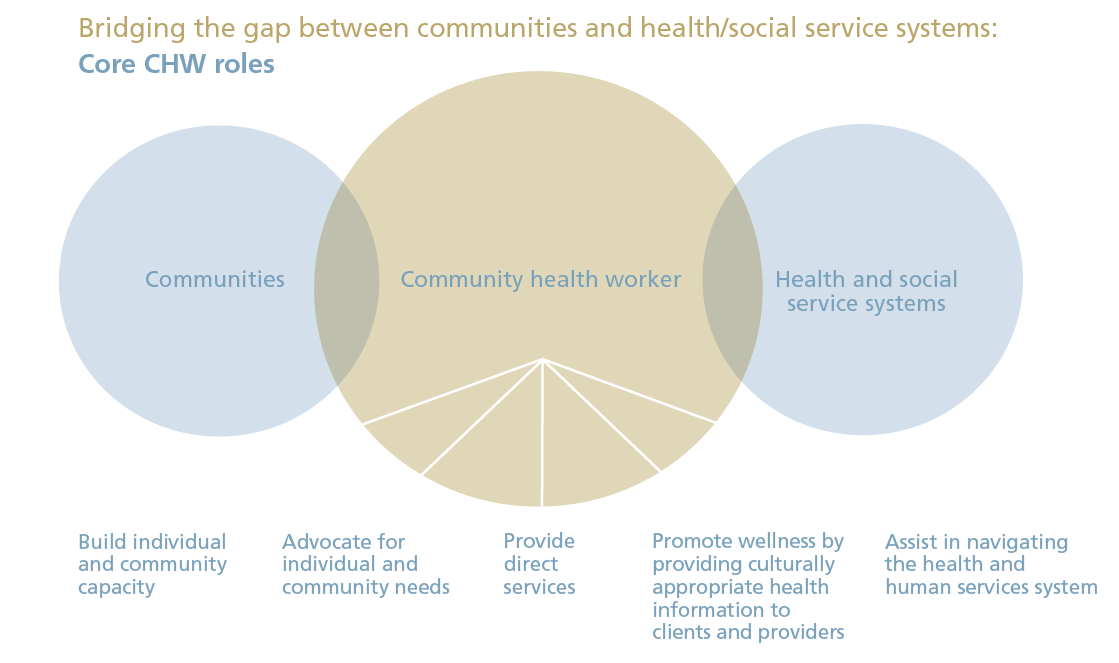
Community Health Worker
Community Health Worker Program: A Catalyst for Health and Empowerment
In 2018, Oregon Spinal Cord Injury Connection (OSCI) received a Craig H. Neilsen Foundation grant to create a Community Health Worker Program led by people with SCI.
What is a community health worker?
A community health worker (CHW) is a trusted member of the community who understands its needs deeply. CHWs connect people with healthcare, social services, and local resources, improving both access and cultural relevance. Additionally, they boost individual and community health by providing outreach, education, informal counseling, support, and advocacy. Learn more from the Minnesota Community Health Worker Alliance (image below, credit to MCHWA).
How does a community health worker help people with a spinal cord injury?
After a traumatic SCI, strong social support becomes essential. Trauma often impacts the mind, heart, and body—making it harder to trust others. A CHW is a peer with lived experience of spinal cord injury trauma. As a result, they offer emotional support through empathy, empowerment, trust, and care.
A community health worker helps people take charge of their care and build healthy habits for long-term success. They also introduce individuals to the Oregon SCI community, where friendships support recreation, education, housing, jobs, and connection. Moreover, CHWs link people to healthcare and local organizations, offering direct access to vital resources and services.
Newly injured people supported by CHWs and the OSCI community are more likely to avoid serious secondary health conditions and rehospitalization. As a result, this support speeds up their transition through the difficult first year, helping them build independence and a positive path toward long-term health and quality of life.
Who are OSCI community health workers?
An OSCI community health worker is someone thriving after a spinal cord injury and serves as a trusted guide into the OSCI community. They’ve developed healthy coping skills, self-awareness, and self-acceptance. As active community members, they invite others to join and grow. Moreover, they walk alongside newly injured individuals, using their experience to empower others to live fully. CHWs with SCI also bring valuable knowledge about secondary conditions, reintegration, peer support, and mentorship.
An OSCI community health worker:
- strives to make life better for others who are living with spinal cord injury and their families.
- has a POSITIVE ATTITUDE with strong interpersonal skills
- has both an optimistic and realistic outlook
- has TIME to connect with others
- has KNOWLEDGE and WILLINGNESS TO LEARN more about important topics about living with spinal cord injury or caregiving
- is able to LISTEN WELL, be present, and share personal experiences and advice when appropriate
- has extensive LIVED EXPERIENCE with a spinal cord injury
How are CHWs similar to peer mentors, but different?
- Same person: a peer mentor and CHW can be the same community member, namely a person with an SCI who is thriving after their injury and who is committed to helping others.
- Training is different: CHW training is 90 hours, is health focused, and completes continued education to remain certified, whereas most peer mentor training is 4-8 hours, is not necessarily health focused, and doesn’t require ongoing continued education or oversight.
- CHW services are coordinated and integrated with healthcare teams and social services case managers.
- CHWs must be certified by and registered with the Oregon Health Authority Traditional Health Worker Commission
- CHWs services are reimbursable by Medicaid, and can be self-employed or employed by a health system, clinic, or community-based organization.
- CHW are a central strategy adopted by Oregon Health Authority to achieve the triple aim (reduced costs, improved health outcomes, improved patient experience).
How does the OSCI CHW program work?
Qualified and interested individuals with SCI are recruited and trained as community health workers (CHW). A CHW will support the newly injured person by reinforcing their health education about nutrition and secondary health conditions through coaching as the person learns and perfects the necessary skills to live independently. CHWs also offer mentorship and emotional support, as well as connecting them to the OSCI support network and opportunities to recreate and engage in the community. The CHW raises awareness among primary care providers about the risks of secondary health conditions (SHC) and about healthy behaviors and resources to prevent those conditions. In Oregon, a CHW typically earns $16-18/hr, but as much as $20/hr.



